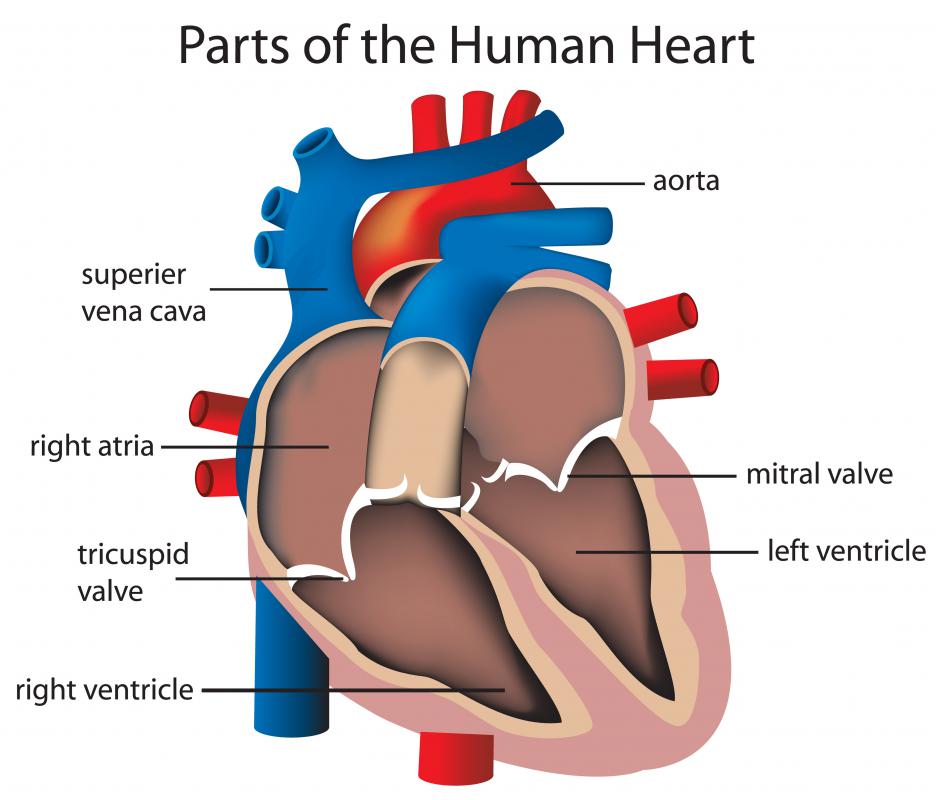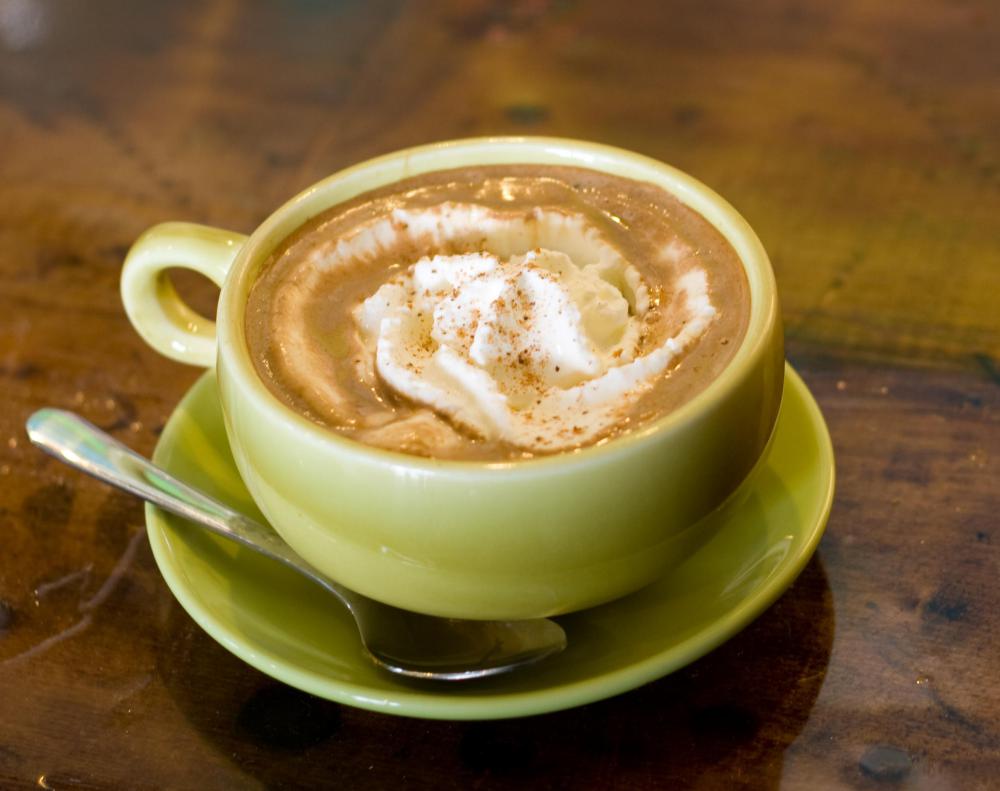At TheHealthBoard, we're committed to delivering accurate, trustworthy information. Our expert-authored content is rigorously fact-checked and sourced from credible authorities. Discover how we uphold the highest standards in providing you with reliable knowledge.
What Causes Heart Palpitations After Eating?
Heart palpitations after eating can be caused when the heart begins to pump blood back to the stomach and other areas to help the digestion process. This activity can sometimes be felt by some people as an abnormal heartbeat. Other causes include fluctuations of blood glucose and its effect on the heart, overeating, and eating spicy foods. In addition, drinking caffeinated beverages such as iced tea and coffee with meals may cause heart palpitations. When other symptoms accompany an abnormal heartbeat after eating, such as chest pain, dizziness, sweating or shortness of breath, further evaluation by a medical professional is recommended.
For some people, eating frequent, smaller meals throughout the day is better than eating three large meals. Not only does this routine keep blood sugar levels from rising and falling, it means that the heart doesn't have to work as hard after a meal. In addition, people who suffer from gastroesophagel reflux (GERD) sometimes experience palpitations, chest pain, and pressure after eating, which can even mimic the symptoms of a heart attack. Eating too quickly and swallowing air can cause pressure in the chest, leading to changes in the heartbeat. While this sensation can provoke anxiety, it is rarely serious.

Occasionally, women who are approaching menopause will experience palpitations after eating. This is typically related to fluctuations in the amount of progesterone and estrogen in the body, which is common during the menopausal years. Certain foods, such as soybeans and tofu, can affect hormone levels and promote an abnormal heart rhythm. In addition, drinking hot or cold beverages can cause the heart to beat quickly when consumed too fast.

In most cases, having palpitations after eating is a harmless phenomenon. If a person experiences changes in heart rhythm that last for a long time or get worse over time, it should be reported to a medical professional, who can determine if they are caused by a heart problem. A healthcare provider might perform an echocardiogram, which is an ultrasound of the heart. Sound waves are used to capture images of the heart and related structures in real time. This imaging method can diagnosis a mitral valve prolapse, for example, where the valve does not open and close properly, sometimes causing palpitations, dizziness, and shortness of breath.

The electrocardiogram can also rule out causes of an abnormal heart rhythm by measuring the heart rate and its regularity. Although this test only provides information about the heart while it is at rest, it is still a valuable tool for evaluating cardiac disturbances. In cases where palpitations become disruptive or disturbing, a medical professional may prescribe beta blockers, medications that slow the heart rate and help it to beat more regularly, relieving palpitations.
AS FEATURED ON:
AS FEATURED ON:
















Discussion Comments
I have the issue of having acid reflux w/hiatal hernia and mitral valve prolapse. So it is hard to pinpoint if gerd is causing the palpitations or the mitral valve issue. I do notice after I eat a palpitation or two will occur up to two hours after I eat. It does occur more often when I feel gassy or bloated
@Valencia: The reason tea usually causes a rapid heart rate is because most contain caffeine. Instead of giving up tea altogether, you can first try caffeine-free tea and see if it makes a difference. Good luck!
I've had bouts of "missed beats" that would result in jaw pain and shortness of breath. I started taking magnesium supplements and the symptoms vanished.
@Windchime: My dog starts to get active after eating.
A while back I noticed I sometimes had a rapid heartbeat after eating. My doctor suggested I keep a food diary and it didn't take long to see a connection between this problem and certain foods. I cut out MSG heavy meals and have been fine ever since.
@Valencia - I avoid any drinks with caffeine with or right after dinner. I guess most people don't think about it, but the pick me up buzz they give you is the opposite of what your body needs after a large meal.
If you watch any animal shows you see that they rest after eating. I wish more cultures made siestas part of the day!
I was searching for information about why I have a fast heart rate after eating, and came across this wonderful article. I feel more confident about possible explanations now.
I think my problem is linked to the tea I drink with every meal. I'm going to cut that out and try water for a while to see if it helps.
I would like to know if caffeine would have the same effect if I drink coffee or tea after I've finished eating. I'm a bit scared to test this out so any advice would be very welcome.
Post your comments